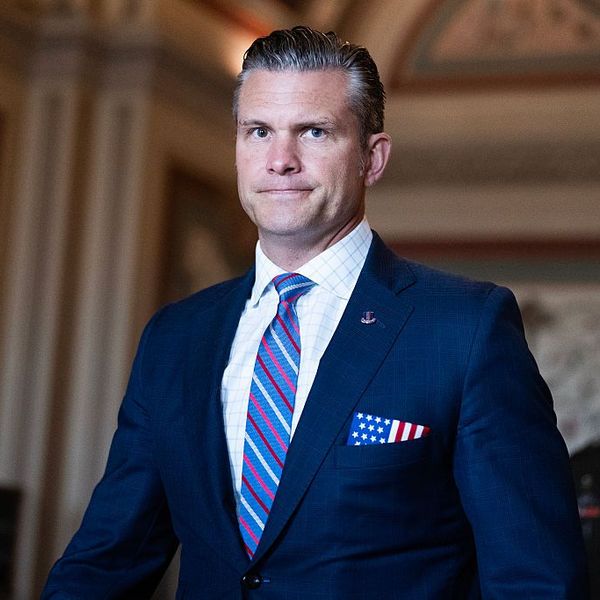No Indictment for Fukushima Execs Who Presided Over Disaster
But a rarely used Japanese citizens' panel could still force accountability
Japanese prosecutors will not indict three former Tokyo Electric Power Co. (TEPCO) executives over their handling of the 2011 Fukushima disaster, a spokesman for Tokyo District Public Prosecutor's Office said Thursday.
However, according to Reuters, "a rarely used citizens' panel could still force an indictment."
The prosecutor's office cited insufficient evidence for the lack of indictment. "We conclude that there is not enough evidence to suggest that TEPCO executives could have predicted or could have avoided (the accident)," said Ryoichi Nakahara, deputy chief prosecutor of the Tokyo District Public Prosecutor's Office.
But that TEPCO could have predicted the danger is precisely the accusation leveled by the Prosecutorial Review Commission, made up of 11 unidentified citizens selected by lottery, which can now force an indictment if eight members of the panel vote in favor.
The Commission last year said that former TEPCO Chairman Tsunehisa Katsumata, along with former Executive Vice-Presidents Sakae Muto and Ichiro Takekuro, should face criminal charges for failing to protect the nuclear plant despite warnings of the dangers it faced from big tsunamis.
Reuters reports:
Prosecutors declined in 2013 to charge more than 30 Tepco and government officials who had been accused by residents of ignoring the risks of natural disasters and failing to respond appropriately to the nuclear crisis.
The Tokyo District Prosecutors Office reopened the case after a citizens' panel ruled in July that the three former Tepco executives, including former Chairman Tsunehisa Katsumata, should be indicted over their handling of the world's worst nuclear disaster since Chernobyl in 1986.
According to AFP, Thursday's "move is the latest in a tussle between legal authorities and an angry public over who should take responsibility for the reactor meltdowns in 2011 that forced tens of thousands from their homes, triggered by a massive 9.0-magnitude earthquake."
A parliamentary report has said the Fukushima disaster was man-made--the result of Japan's culture of 'reflexive obedience' as well as government-industry 'collusion'--but no one has been punished criminally.
An Urgent Message From Our Co-Founder
Dear Common Dreams reader, The U.S. is on a fast track to authoritarianism like nothing I've ever seen. Meanwhile, corporate news outlets are utterly capitulating to Trump, twisting their coverage to avoid drawing his ire while lining up to stuff cash in his pockets. That's why I believe that Common Dreams is doing the best and most consequential reporting that we've ever done. Our small but mighty team is a progressive reporting powerhouse, covering the news every day that the corporate media never will. Our mission has always been simple: To inform. To inspire. And to ignite change for the common good. Now here's the key piece that I want all our readers to understand: None of this would be possible without your financial support. That's not just some fundraising cliche. It's the absolute and literal truth. We don't accept corporate advertising and never will. We don't have a paywall because we don't think people should be blocked from critical news based on their ability to pay. Everything we do is funded by the donations of readers like you. Will you donate now to help power the nonprofit, independent reporting of Common Dreams? Thank you for being a vital member of our community. Together, we can keep independent journalism alive when it’s needed most. - Craig Brown, Co-founder |
Japanese prosecutors will not indict three former Tokyo Electric Power Co. (TEPCO) executives over their handling of the 2011 Fukushima disaster, a spokesman for Tokyo District Public Prosecutor's Office said Thursday.
However, according to Reuters, "a rarely used citizens' panel could still force an indictment."
The prosecutor's office cited insufficient evidence for the lack of indictment. "We conclude that there is not enough evidence to suggest that TEPCO executives could have predicted or could have avoided (the accident)," said Ryoichi Nakahara, deputy chief prosecutor of the Tokyo District Public Prosecutor's Office.
But that TEPCO could have predicted the danger is precisely the accusation leveled by the Prosecutorial Review Commission, made up of 11 unidentified citizens selected by lottery, which can now force an indictment if eight members of the panel vote in favor.
The Commission last year said that former TEPCO Chairman Tsunehisa Katsumata, along with former Executive Vice-Presidents Sakae Muto and Ichiro Takekuro, should face criminal charges for failing to protect the nuclear plant despite warnings of the dangers it faced from big tsunamis.
Reuters reports:
Prosecutors declined in 2013 to charge more than 30 Tepco and government officials who had been accused by residents of ignoring the risks of natural disasters and failing to respond appropriately to the nuclear crisis.
The Tokyo District Prosecutors Office reopened the case after a citizens' panel ruled in July that the three former Tepco executives, including former Chairman Tsunehisa Katsumata, should be indicted over their handling of the world's worst nuclear disaster since Chernobyl in 1986.
According to AFP, Thursday's "move is the latest in a tussle between legal authorities and an angry public over who should take responsibility for the reactor meltdowns in 2011 that forced tens of thousands from their homes, triggered by a massive 9.0-magnitude earthquake."
A parliamentary report has said the Fukushima disaster was man-made--the result of Japan's culture of 'reflexive obedience' as well as government-industry 'collusion'--but no one has been punished criminally.
Japanese prosecutors will not indict three former Tokyo Electric Power Co. (TEPCO) executives over their handling of the 2011 Fukushima disaster, a spokesman for Tokyo District Public Prosecutor's Office said Thursday.
However, according to Reuters, "a rarely used citizens' panel could still force an indictment."
The prosecutor's office cited insufficient evidence for the lack of indictment. "We conclude that there is not enough evidence to suggest that TEPCO executives could have predicted or could have avoided (the accident)," said Ryoichi Nakahara, deputy chief prosecutor of the Tokyo District Public Prosecutor's Office.
But that TEPCO could have predicted the danger is precisely the accusation leveled by the Prosecutorial Review Commission, made up of 11 unidentified citizens selected by lottery, which can now force an indictment if eight members of the panel vote in favor.
The Commission last year said that former TEPCO Chairman Tsunehisa Katsumata, along with former Executive Vice-Presidents Sakae Muto and Ichiro Takekuro, should face criminal charges for failing to protect the nuclear plant despite warnings of the dangers it faced from big tsunamis.
Reuters reports:
Prosecutors declined in 2013 to charge more than 30 Tepco and government officials who had been accused by residents of ignoring the risks of natural disasters and failing to respond appropriately to the nuclear crisis.
The Tokyo District Prosecutors Office reopened the case after a citizens' panel ruled in July that the three former Tepco executives, including former Chairman Tsunehisa Katsumata, should be indicted over their handling of the world's worst nuclear disaster since Chernobyl in 1986.
According to AFP, Thursday's "move is the latest in a tussle between legal authorities and an angry public over who should take responsibility for the reactor meltdowns in 2011 that forced tens of thousands from their homes, triggered by a massive 9.0-magnitude earthquake."
A parliamentary report has said the Fukushima disaster was man-made--the result of Japan's culture of 'reflexive obedience' as well as government-industry 'collusion'--but no one has been punished criminally.

